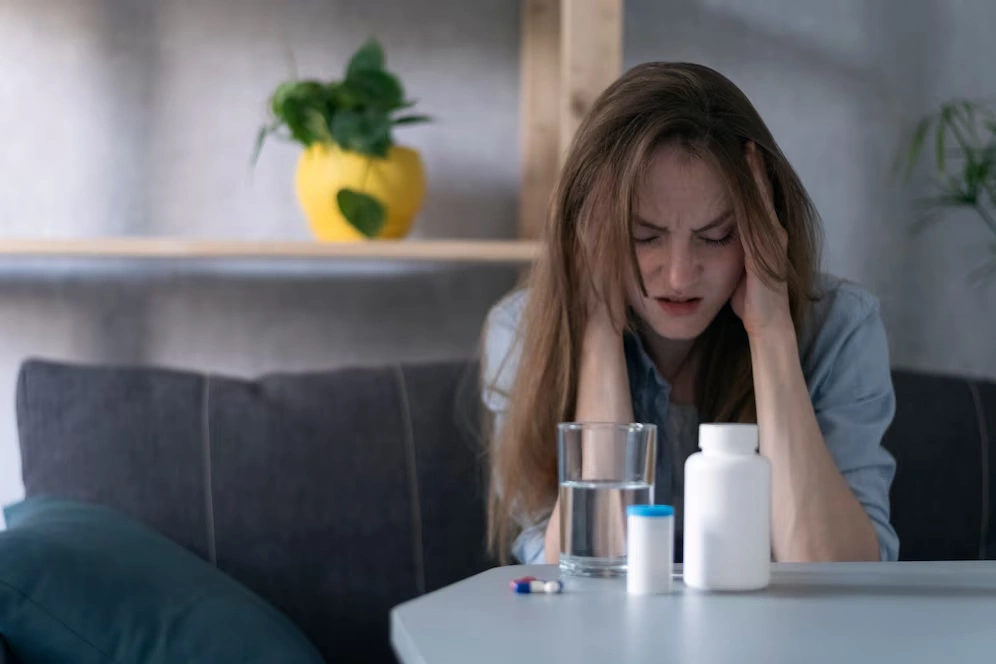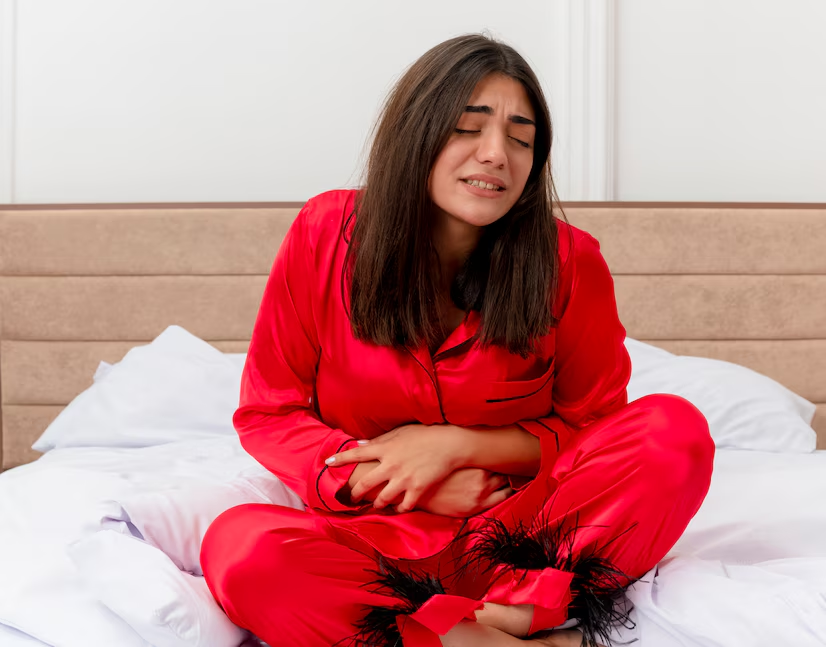Beginners Guide to Zopiclone for Depression

Over the last years, a search for effective treatments of mental health conditions drove new insights and innovations. One of the drugs that came into prominence, especially in the context of depression, is zopiclone. While it is commonly known to be a sleeping aid, its role in managing depression, more so the kind related to insomnia, is something that is becoming increasingly recognized. It is this guide’s hope to offer an overview of zopiclone, its uses, its benefits, and considerations-mostly for those who may be new to the treatment.
Table of Contents
ToggleWhat is Zopiclone?
Zopiclone is a sedative-hypnotic medication prescribed for treating short-term insomnia. It is from a category of agents known as non-benzodiazepine hypnotics-substances that sleep-induce and help individuals maintain their sleep. Non-benzodiazepines are, to a large extent, used for inducing sleep with minimal side effects compared to their predecessors, the benzodiazepines, which have a rather longer history of use and a wider range of applications.
How Does Zopiclone Work?
Zopiclone exerts its action on the neurotransmitters of the brain, particularly gamma-aminobutyric acid. GABA is an inhibitory neurotransmitter in the regulation of neuronal excitability. By potentiating the effects of GABA, zopiclone has promoting actions on relaxation and sleep. This action is salutary for persons with insomnia-a disabling condition that can often be exacerbated or be a symptom of depression.
Zopiclone and Depression: Understanding the Connection
While major depression is not an indication for the use of zopiclone, the medication can be extremely useful in the management of symptoms usually closely associated with depression, such as insomnia. Depression is normally accompanied by disturbances in sleep patterns, and the reverse is also true. Zopiclone enhances the quality of sleep; therefore, it may be helpful in mitigating certain symptoms associated with major depression.
When is Zopiclone Used for Depression?
Zopiclone is recommended for the treatment of depression, especially under the following conditions:
- Insomnia Related to Depression: When a depressive condition suffers from disturbed sleep, a certain drug like zopiclone is prescribed to solve the problems related to sleep. Once the sleep of a patient improves, then the regulation of mood improves, and it has an overall beneficial effect on mental health.
- Short-Term Management: Short-term management generally uses the drug because of the development of dependence on the drug. In cases of short-term depressive episodes or acute insomnia, the individual may gain relief from zopiclone while other treatments are considered that may take longer to come into effect.
- Adjunct Therapy: The use of zopiclone in certain situations can be combined with the use of antidepressant medications for individuals experiencing concurrent sleep disorders. This approach would cover both mood and sleep disturbances in the patient’s overall treatment.
Dosage and Administration
The dose of zopiclone must be individualised, considering the conditions and health status of the person. It is very important for the instructions of a healthcare provider to be followed in order not to develop any side effects and interactions.
Typical Dosage
- Usual Adult Dose: The usual starting dose for adults is 7.5 mg before retiring for the night. Dosage adjustments may be initiated based on the patient’s response and side effects.
- Elderly Patients: In the case of the elderly patient, 3.75 mg should be the starting dose due to increased sensitivity to the mediation and adverse medication-related effects associated with medication.
Administration Tips
- Timing: Zopiclone should be taken just shortly before retiring for the night, with a full night’s sleep (7-8 hours) to minimize the possibility of residual daytime sedation.
- Avoid Alcohol: Concomitant administration of alcohol enhances the sedative effect of zopiclone due to the depression of the central nervous system leading to impaired cognitive function and possibly drowsiness.
- Consistency: It is very important to use zopiclone on a regular basis, as it might be prescribed, to avoid possible withdrawal symptoms or dependence associated with the drug.
Potential Side Effects
Like any other medication, zopiclone has a number of side effects. Being informed about the possible ways it may affect one will be helpful in the management and reduction of such side effects.
Common Side Effects
- Drowsiness: Zopiclone is supposed to induce sleep; hence, drowsiness and grogginess the next morning are common.
- Dry Mouth: This is one of the most reported side effects, which one can always keep under control by keeping one’s self always hydrated and with sugar-free lozenges.
- Metallic Taste: Some people have metallic taste in the mouth following the intake of zopiclone.
Less Common but Serious Side Effects
- Memory Impairment: Very rarely, zopiclone may cause short-term memory loss or confusion.
- Allergic Reactions: Symptoms like rash, itching, or swelling might constitute an allergic reaction and therefore need immediate medical attention.
- Dependence and Withdrawal: Dependence is described with continued therapy. The manifestations of withdrawal include anxiety, agitated states, and sleep disturbances.
Interactions with Other Medications
Zopiclone may combine with drugs of other classes, the effect of which may be altered or the risk of side effects increased.
Common Interactions
- Other Sedatives: Concomitant administration of zopiclone with other sedatives or antidepressants clinically producing CNS depressant effects may be additive, resulting in pronounced sedation.
- Antidepressants: Some antidepressants may interfere with the action of zopiclone and either reduce its efficacy or increase the tendency toward side effects.
Consulting with Healthcare Providers
All currently taken medications, over-the-counter drugs, and supplements should be brought to the notice of the healthcare provider. This will help the healthcare provider avoid potential harmful interactions and render effective treatment.
Alternatives to Zopiclone
While effective, zopiclone can be used in treating insomnia accompanying depression; it is not the only treatment option. There are various alternatives, including:
Non-Medication Approaches
- Cognitive Behavioral Therapy for Insomnia (CBT-I): An evidence-based therapy to help address the cognitions and behaviors underlying insomnia.
- Sleep Hygiene Practices: Good sleep hygiene practices, like going to bed and getting up at roughly the same time each day, avoiding drinks that contain caffeine well before bedtime, making the sleep environment comfortable, and dark, quiet, and cool, would go a long way in improving sleep for most people.
Other Medications
- Melatonin: This is a hormone whose supplement causes sleep-wake cycles naturally and is less dangerous in treating insomnia.
- Sedating Antidepressants: Designed to fight depression and other related issues, medications such as trazodone have sedating side effects and can be prescribed as sleep inducers.
Managing Depression Beyond Medication
It needs to be said over and over again that medication forms only part of an overall system of managing depression. In that line, the other strategies include the following:
- Psychotherapy: Through therapy, either CBT or IPT, an individual is enlightened on valuable tools and support that can be used in the management of depression.
- Changes in Lifestyle: Regular exercises, a good diet, and social support contribute to the overall mental health of a person and complement the use of medication and psychotherapy.
- Stress Management: Stress management techniques such as mindfulness, meditation, and relaxation exercises reduce stress levels and hence minimize one’s vulnerability to mental illness.
Conclusion
Zopiclone is primarily utilized to help induce sleep; however, it may also contribute to the treatment of depression in certain situations where insomnia is not just a symptom but a major issue. Knowing its benefits and side effects, and how it should be used, will help both the patient and medical professional make informed decisions on how to use it. Just as with all medications, treatment should be approached holistically with varied strategies aimed at the alleviation of symptoms related to sleep and mood.
First and foremost, it is very important to consult a healthcare professional if you or someone you know is considering zopiclone as an addition to a treatment plan. They will be able to give you tailored advice, helping to make sure that any treatment plan, for your personal needs, is safe and effective. Remember, managing depression often takes a multilayered approach, and the key to good mental health often includes finding a balance of therapies and medications.

Noah Harrison, based in Australia, is an experienced content writer with a strong focus on the medical industry. Holding a master’s degree in English literature, Noah Harrison combines exceptional writing skills with in-depth knowledge of medical science to create informative and engaging content. Read more about Noah Harrison.





